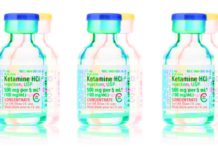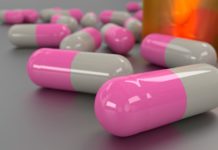Mental Health Professionals Critique the Biomedical Model of Psychological Problems
While a great deal of the excitement about advances in psychological treatments comes from the potential for research in neuroscience to unlock the secrets of the brain, many mental health experts would like to temper this enthusiasm. A special issue of the Behavior Therapist released this month calls into question the predominant conception of mental illnesses as brain disorders.
The Impact of Regression to the Mean in Psychiatric Drug Studies
Could the statistical phenomenon of regression to the mean be responsible for the dramatic effects of placebo—as well as the supposed effectiveness of some psychiatric drugs?
Marijuana Causes “Schizophrenia-Like” Brain & Behavior Changes
Heavy pot users were found to have working-memory deficits and associated changes in brain morphology that were consistent with changes found in persons with...
The Road to Perdition
The recent research scandals out of the University of Minnesota’s Department of Psychiatry may be alarming, but they are not new. Back in the 1990s, when the university was working its way towards a crippling probation by the National Institutes of Health (for yet another episode of misconduct (this time in the Department of Surgery), the Department of Psychiatry hosted two spectacular cases of research wrongdoing, both of which resulted in faculty members being disqualified from conducting research by the FDA.
Confronting the Addiction Voice on the Road to Recovery
Part 1 of this series examined how the disease model of addiction intersects with the genetically based “mental illness” theory and practice of Biological Psychiatry. Part 2 analyzed the serious limitations and sometimes harmful effects of the domination of addiction treatment by the Twelve Step (disease model), and how Biological Psychiatry has both seized upon and expanded the culture of addiction in this country. What follows will be a presentation of some alternative methods for overcoming addiction problems.
Addiction, Biological Psychiatry and the Disease Model (Part 1)
Both addiction and “mental illness” are far more prevalent where there is poverty, patriarchy, and other forms of mental and physical violence; all this creates fertile ground for various forms of trauma experiences on a daily basis. Addiction and extreme states of psychological distress will never be fully eradicated, or even humanely treated on a broad scale, until the material conditions from which they have emerged are transformed in a truly revolutionary way.
Is Addiction a Disease?
Our lives changed the day we began looking inside ourselves for ways to move towards more joy and less suffering for us and those around us. We took ownership of the good and bad from our past and learned that if we came from a place of inner strength we could frame much of our future. The lessons and necessary mentoring that led to us reshaping our experiences happened within the context of addiction treatment. This treatment for us, and many others, consisted of working on ourselves with the guidance of people who had re-built - or built for the first time - daily lives rich in meaning and social connection.
United Nations Report Calls for Revolution in Mental Health Care
In a new report, the United Nations Special Rapporteur on the right to health, Dr. Dainius Pūras, calls for a move away from the biomedical model and “excessive use of psychotropic medicines.”
New Meta-Analysis: Mindfulness Interventions Effective for Psychiatric Disorders
A meta-analysis of mindfulness-based interventions shows efficacy for treating depression, physical pain, smoking, and addictive disorders.
Quitting Smoking May Help with Depression
A new study suggests that smoking cessation is related to depressive symptom improvement, but that depression may also make it harder to quit.
Young Transgender Women Burdened with High Rates of Psychiatric Diagnoses
New research published in JAMA Pediatrics reveals that transgender women have more than double the prevalence of psychiatric diagnoses than the general US population. The study found that the women, who had been assigned male at birth and now identified as female, had a high prevalence of suicidality, post-traumatic stress disorder, substance abuse, generalized anxiety and major depressive disorder.
Ketamine for Harmful Drinking: A Look at the Data
New research contends that ketamine can reduce problematic alcohol use but does the data support the claims?
“You Keep Giving Adderall to my Son, You’re Going to Kill Him”
The New York Times, in an extraordinarily lengthy front-page article, chronicles the descent of popular college class president, athlete, and aspiring medical student into...
Most People with Common ‘Mental Disorders’ Get Better Without Treatment, Study Finds
A new study suggests that most people diagnosed with depressive, anxiety, and substance abuse disorders recover without treatment within a year of diagnosis. “This...
Neoliberalism Drives Increase in Perfectionism Among College Students
Meta-analytic study detects upsurge in patterns of perfectionism in young adults and explores how neoliberalism contributes to this trend.
Review Finds Lack of Evidence for Antidepressants in Treatment of Insomnia
Results from a Cochrane meta-analysis find that the common practice of prescribing antidepressants to treat insomnia is not supported by current evidence.
Amphetamines Have Long-Term Effects on Adolescent Brain, Study Finds
A new study published in the journal Neuroscience finds that rats given regular doses of amphetamines during adolescence have brain and behavioral changes in adulthood....
Study Examines the Difficulty of Withdrawing from Antidepressant Drugs
Correcting unnecessary long-term antidepressant use is difficult and met with apprehension by providers and service-users.
Belongingness Can Protect Against Impact of Trauma, Study Suggests
A new study explores feelings of belongingness as a protective factor for childhood trauma and adult mental health outcomes.
How the News Frames the Opioid Epidemic
US news coverage has primarily framed the opioid drug abuse epidemic as a criminal justice issue rather than a public health problem, according to new research published ahead of print in the Journal of Psychiatric Services. The media’s framing of the epidemic may increase stigma against those who develop a dependency on prescription drugs and distract political attention from public-health oriented solutions, such as increased access to substance abuse recovery treatments.
Study Finds High Risk for Suicide Following Psychiatric Hospitalization
Patients are at an increased risk for suicide during the three months immediately following discharge from an inpatient psychiatric hospital.
Nonclinical Factors are Associated with Long-Term Benzodiazepine Use in Older Adults
White race and size of initial prescription, along with poor sleep quality, are associated with long-term benzodiazepine use in older adults.
The Unmedicated Life
It has been 7.5 years since I got off benzos, the drug that damaged me the most, and 6.75 years off all meds; the final medicine I tapered was a tricyclic antidepressant, nortriptyline, in autumn 2006. Since that time, I have not taken another psychoactive medicine, nor have I had any desire to. Neither have I sought out therapy or the like. Personally, I’m sick of labels, sick of the industry, sick of talking about my “problems,” sick of navel-gazing, and would just rather live.
New Study Examines User Experience of Discontinuing Psychiatric Medications
Researchers find that support and self-care were helpful for users during discontinuation, but that mental health professionals were not very helpful.
Michael Wilusz: Coming of Age on Psych Drugs
Michael Wilusz discusses his experience struggling with emotional distress, the ensuing regimen of psychiatric drug treatment, and his process tapering off of the drugs.






















